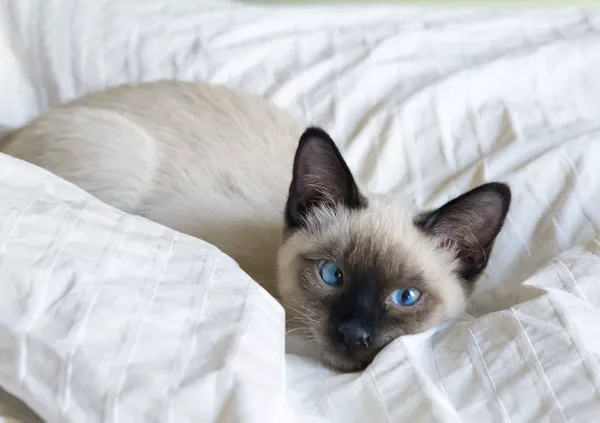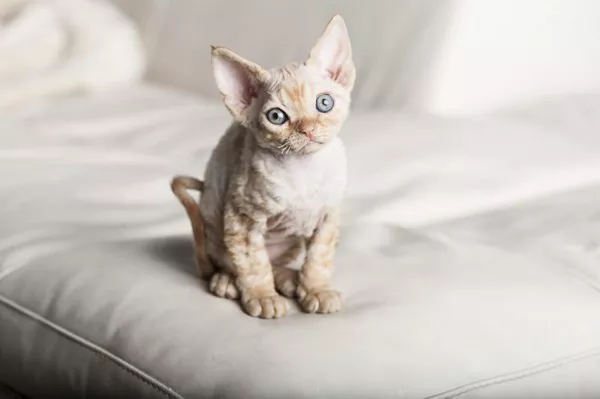Siamese cats are beloved for their striking appearance, playful demeanor, and affectionate nature. However, like all feline breeds, maintaining a healthy weight is crucial for their overall well-being. Female Siamese cats, in particular, require careful attention to their weight to ensure they remain healthy and happy. In this article, we delve into the factors that influence the ideal weight for female Siamese cats, how to determine if your cat is at a healthy weight, and strategies for maintaining optimal weight and health.
The Importance of Healthy Weight in Siamese Cats
Maintaining a healthy weight is essential for all cats, regardless of breed, age, or gender. However, it holds particular significance for Siamese cats due to their unique characteristics and predispositions. Female Siamese cats, like their male counterparts, are typically slender and graceful in build. Their weight should align with their body structure to support their overall health and vitality.
Factors Influencing Weight in Female Siamese Cats
Several factors influence the weight of female Siamese cats. Understanding these factors is essential for assessing whether a cat’s weight falls within a healthy range.
1. Breed Standards: Breed standards set by cat associations such as The International Cat Association (TICA) and the Cat Fanciers’ Association (CFA) provide guidelines for the ideal weight range for Siamese cats. While these standards may vary slightly between associations, they serve as valuable reference points for assessing a cat’s weight.
2. Age: Age plays a significant role in determining a cat’s weight. Kittens typically have a lower weight compared to adult cats. As female Siamese cats mature, they may naturally gain weight until reaching their adult size. However, excessive weight gain in adulthood can lead to health issues and should be monitored closely.
3. Body Composition: Body composition, including muscle mass and fat distribution, influences a cat’s weight. Siamese cats are known for their lean, muscular bodies. A healthy weight reflects a balance between muscle and fat, with minimal excess fat deposits.
4. Activity Level: The activity level of a cat can impact its weight. Female Siamese cats are generally active and playful, which helps them maintain a healthy weight. Cats with sedentary lifestyles are more prone to weight gain and associated health problems.
5. Diet and Nutrition: Diet plays a crucial role in determining a cat’s weight. Feeding a balanced diet that meets the nutritional needs of female Siamese cats is essential for maintaining optimal weight. Overfeeding or feeding high-calorie foods can lead to weight gain, while inadequate nutrition can result in underweight cats.
Determining the Ideal Weight for Female Siamese Cats
Determining whether a female Siamese cat is at a healthy weight involves a combination of visual assessment, palpation, and regular veterinary check-ups. Here are some methods for evaluating a cat’s weight:
1. Visual Assessment: A visual assessment involves observing the cat’s overall body condition. A healthy Siamese cat should have a slender, athletic appearance, with a visible waistline when viewed from above. The ribs should be palpable but not protruding, and there should be minimal abdominal fat.
2. Palpation: Palpating the cat’s body can help assess muscle tone and fat distribution. Run your hands along the cat’s sides and abdomen, feeling for the presence of ribs and assessing the amount of fat padding. A healthy cat should have a moderate amount of subcutaneous fat without excessive padding.
3. Body Condition Score (BCS): Veterinary professionals often use a body condition scoring system to assess a cat’s weight. This system typically ranges from 1 to 9, with 1 being emaciated and 9 being obese. A healthy Siamese cat typically falls within the 4 to 5 range, indicating an ideal balance of muscle and fat.
4. Regular Veterinary Check-ups: Regular veterinary check-ups are essential for monitoring a cat’s weight and overall health. During these visits, the veterinarian can perform a thorough physical examination, assess body condition, and provide personalized recommendations for diet and exercise.
Maintaining Optimal Weight and Health
Maintaining a healthy weight in female Siamese cats requires a combination of proper nutrition, regular exercise, and preventive healthcare. Here are some strategies for supporting your cat’s weight management:
1. Balanced Diet: Feed your cat a balanced diet formulated specifically for feline nutritional needs. Choose high-quality cat food that provides essential nutrients without excess calories. Measure portions carefully to prevent overfeeding, and avoid feeding table scraps or high-calorie treats.
2. Regular Exercise: Encourage regular exercise to help your cat stay active and maintain a healthy weight. Provide opportunities for play and exploration, such as interactive toys, climbing structures, and puzzle feeders. Engaging in play with your cat can strengthen your bond while promoting physical activity.
3. Weight Monitoring: Monitor your cat’s weight regularly to track changes and identify any potential issues early. Use a digital scale to weigh your cat periodically, and record the results to track trends over time. Consult your veterinarian if you notice significant changes in weight or body condition.
4. Veterinary Care: Schedule regular veterinary check-ups to monitor your cat’s overall health and well-being. Your veterinarian can assess your cat’s weight, provide dietary recommendations, and address any health concerns promptly. Follow your veterinarian’s advice regarding preventive care, vaccinations, and parasite control.
5. Avoid Free-Feeding: Avoid free-feeding, which can lead to overeating and weight gain. Instead, establish a regular feeding schedule with measured portions to control calorie intake. Divide daily food rations into multiple small meals to prevent hunger and maintain energy levels throughout the day.
Conclusion
Maintaining a healthy weight is essential for the overall health and well-being of female Siamese cats. By understanding the factors that influence weight, regularly assessing body condition, and implementing appropriate strategies for weight management, cat owners can help their feline companions live long, healthy lives. Consultation with a veterinarian is crucial for personalized guidance and support in maintaining optimal weight and health for female Siamese cats. Through proper nutrition, regular exercise, and preventive healthcare, cat owners can ensure that their beloved Siamese companions thrive at a healthy weight.

























